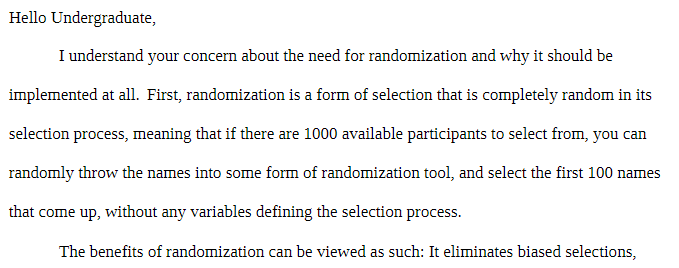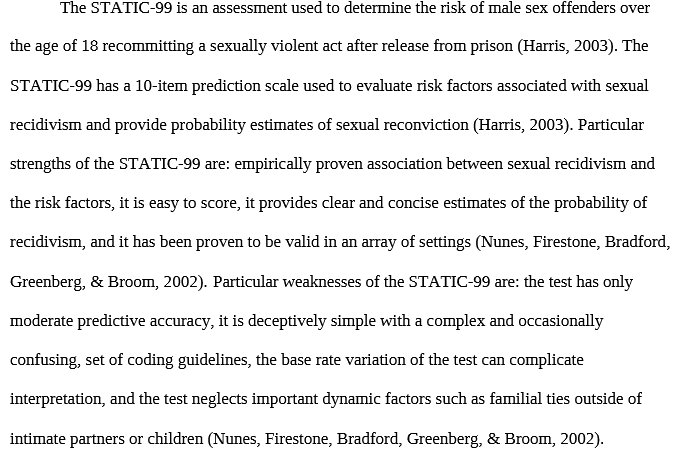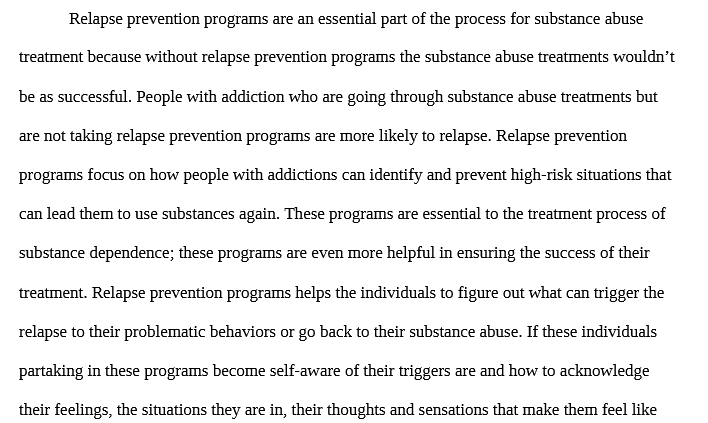PSY510 PSY 510 JonesN_M5A1.docx – Snhu
$4.99$16.99
PSY510 PSY 510 JonesN_M5A1.docx – Snhu
I understand your concern about the need for randomization and why it should be implemented at all. First, randomization is a form of selection that is completely random in its selection process, meaning that if there are 1000 available participants to select from, you can randomly throw the names into some form of randomization tool, and select the first 100 names that come up, without any variables defining the selection process. The benefits of randomization can be viewed as such: It eliminates biased selections, balances groups with respect to the known and unknown variables in the study, and tests the equality of treatments applied [Yal17].
Description
PSY510 PSY 510 JonesN_M5A1.docx – Snhu
I understand your concern about the need for randomization and why it should be implemented at all. First, randomization is a form of selection that is completely random in its selection process, meaning that if there are 1000 available participants to select from, you can randomly throw the names into some form of randomization tool, and select the first 100 names that come up, without any variables defining the selection process. The benefits of randomization can be viewed as such: It eliminates biased selections, balances groups with respect to the known and unknown variables in the study, and tests the equality of treatments applied [Yal17].
PSY510 PSY 510 JonesN_M5A1.docx – Snhu
Basically, randomizing your research allows for a more realistic approach to the data found during the study, as this data is being applied to a broader range of information to benefit others. Setting up a set of qualifications before selecting the participants not only allows for manipulation of such data found but allows for the researcher to find participants that are more likely going to give them the results they are looking for. Nighttime eating has become a serious problem that has been getting a lot of attention. Nighttime eating is found to increase the risk of obesity and diabetes.
PSY510 PSY 510 JonesN_M5A1.docx – Snhu
The role of ingested nutrients can change throughout the day, as nighttime intake of certain nutrients may lead to overeating and obesity. It has been shown that nightshift work can contribute to weight gain as well, due to abnormal sleep patterns. Those with NES (Nighttime Eating Syndrome)consume a large portion of their calories at night, contributing to weight gain and obesity. The less sleep an individual gets, the more opportunity they get to eat. It is shown that active individuals benefit from healthy nighttime snacking when supplied with healthy overnight nutrients, as protein intake before sleep can help with muscle recovery. For inactive individuals, this can elicit unfavorable metabolic effects in overweight or obese individuals.
PSY510 PSY 510 JonesN_M5A1.docx – Snhu
- PSY 211 – Lifespan Development (5015 Documents),
- PSY 215 – Abnormal Psychology (4335 Documents),
- PSY 108 – Introduction to Psychology (3759 Documents),
- PSY 223 – Statistics for Psychology Research (2652 Documents),
- PSY 216 – Psychology of Personality (1841 Documents),
- PSY 510 – Research Methods (1748 Documents),
- PSY 520 – Research Methods in Psychology II (1469 Documents),
- PSY 257 – Psychology (1451 Documents),
- PSY 310 – Criminal Psychology (1393 Documents),
- PSY 200 – FOUNDATIONS OF ADDICTIONS (1379 Documents),
Only logged in customers who have purchased this product may leave a review.







Reviews
There are no reviews yet.